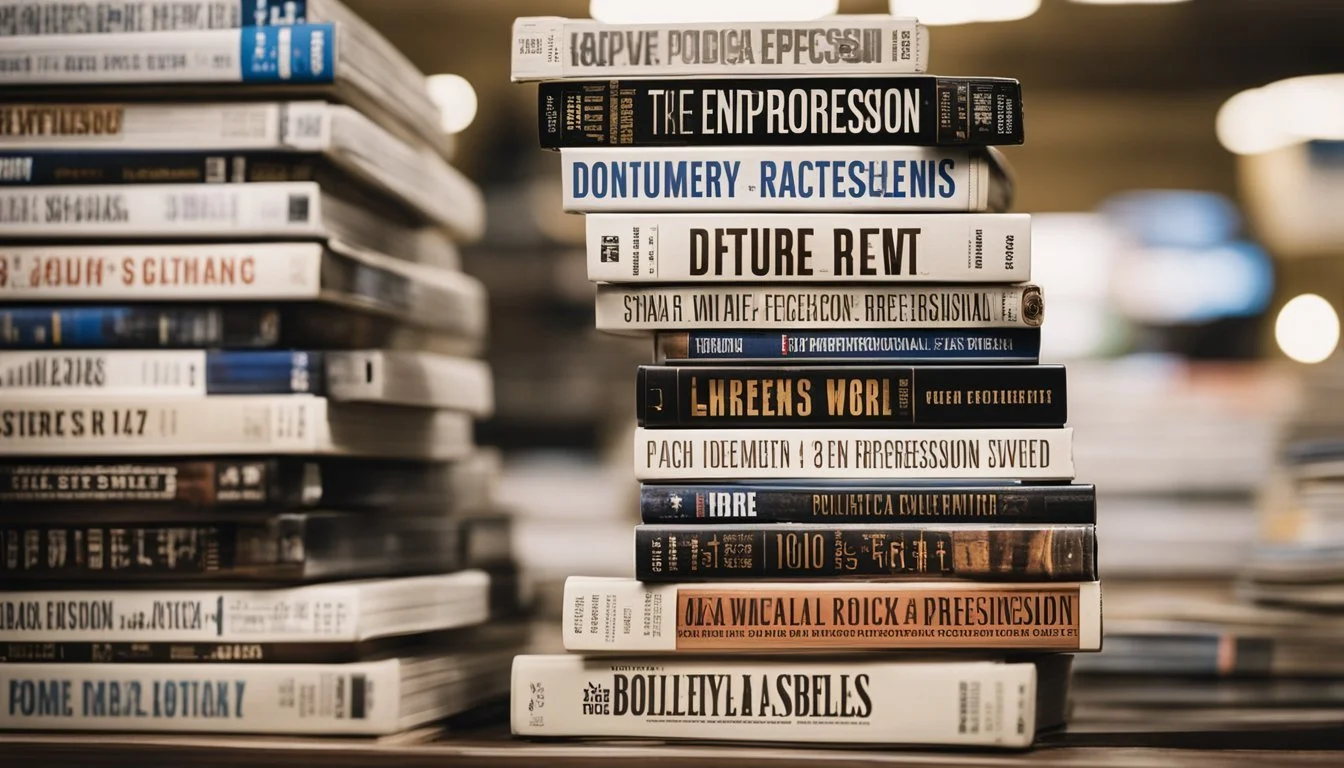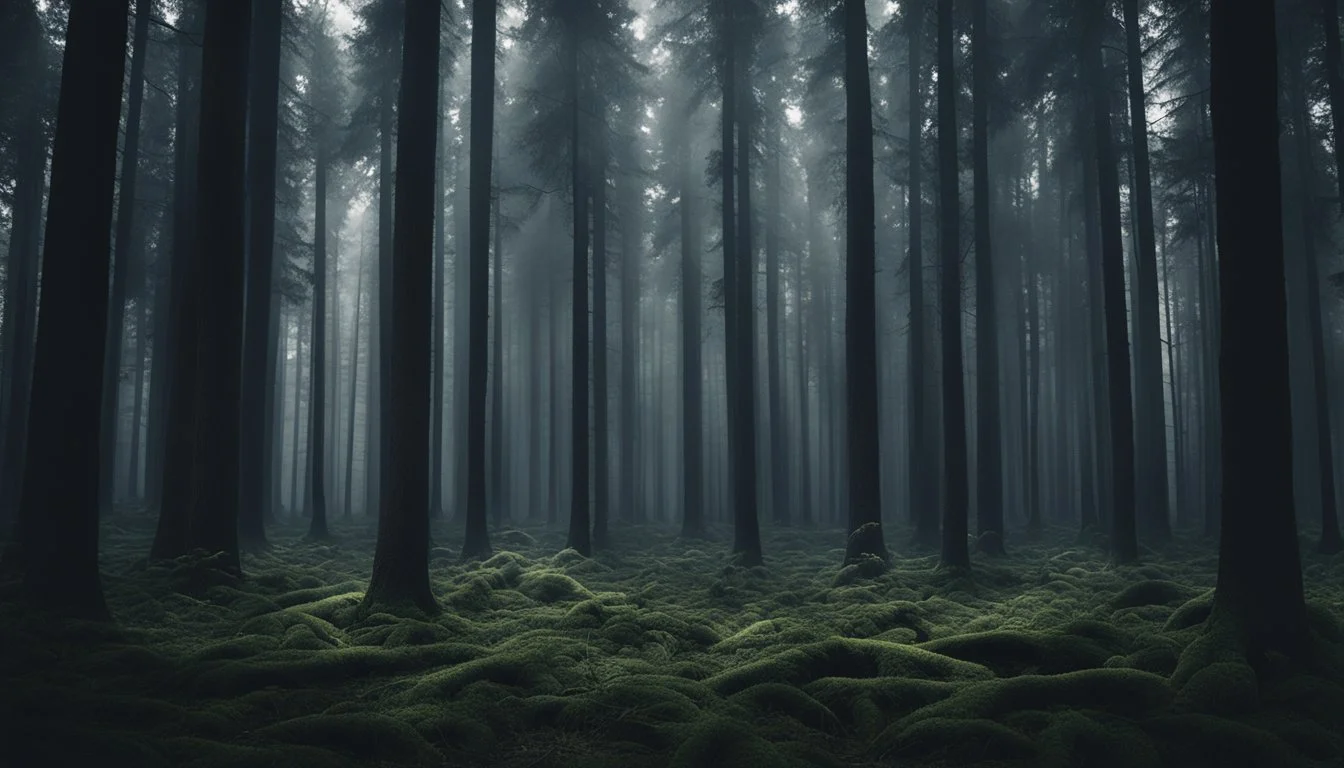5 Documentaries on Political Repressions
Essential Viewing for Understanding Historical Injustices
Political repressions have shaped histories and altered the fates of countless societies. Understanding political repressions through documentaries offers a unique lens into the mechanisms of power and resistance. These films provide viewers with an unfiltered look at the human stories behind the headlines and the impact of authoritarian actions on individuals and communities.
Documentaries about political repressions delve into various regimes and eras, showcasing both historical and contemporary examples. They highlight the bravery of those who resist and the often brutal methods employed to silence dissent. These narratives are crucial in fostering awareness and sparking dialogue about human rights and justice.
1) The Act of Killing (2012)
"The Act of Killing" explores the Indonesian mass killings of 1965-66. Directed by Joshua Oppenheimer, the film dives into the lives of individuals who committed these atrocities, offering a disturbing perspective on historical events.
The film features reenactments by the perpetrators themselves, revealing their memories and justifications. This approach brings an unsettling authenticity to their stories.
Many of these individuals continue to live freely and enjoy social prestige. Oppenheimer's film effectively sheds light on this dark chapter in history, raising questions about memory and justice.
For more information, visit Wikipedia.
2) The Look of Silence (2014)
The Look of Silence, directed by Joshua Oppenheimer, is a powerful documentary that investigates the Indonesian mass killings of 1965-66. The film serves as a companion piece to Oppenheimer's earlier work, The Act of Killing. It provides a deeply personal examination of the tragic events.
The documentary follows a family of survivors who discover how their son and brother was murdered. This is achieved through Oppenheimer’s footage of the genocide’s perpetrators.
Executive producers of the film include Werner Herzog, Errol Morris, and Andre Singer. The Look of Silence was critically acclaimed and received a nomination for the Academy Award for Best Documentary.
The Look of Silence puts a human face on history's grim realities and carries significant educational value. It brings attention to the lingering impacts of political repression and the search for justice.
For more information, please visit Wikipedia.
3) One Day in the Life of Andrei Arsenevich (2000)
This documentary is directed by French filmmaker Chris Marker. It pays homage to Russian filmmaker Andrei Tarkovsky, capturing him during the making of his final film, "The Sacrifice."
Marker uses film clips, journal entries, and personal reflections to paint an intimate portrait of Tarkovsky's creative process. The documentary highlights Tarkovsky's dedication despite his deteriorating health.
Andrei Tarkovsky's films often explored themes of spirituality and human suffering. Through Marker’s lens, viewers gain insight into Tarkovsky's personal and professional struggles.
This film is part of the French series "Cinéastes de notre temps" (Filmmakers of Our Time), which profiles influential filmmakers. The documentary serves as both a tribute and a poignant reflection on the life and work of a cinematic legend.
For more information, visit IMDb.
4) The Soviet Story (2008)
"The Soviet Story," released in 2008, explores the brutal history of the Soviet Union. Directed by Edvins Snore, the documentary reveals the dark political suppressions under Soviet Communism.
The film includes interviews with Western and Russian historians, such as Norman Davies and Boris Vadimovich Sokolov. Their insights help shed light on Soviet-German relations before and after 1941.
Filmed in multiple countries including Russia, Ukraine, Latvia, Germany, France, the UK, and Belgium, "The Soviet Story" showcases the extensive research Snore undertook over a decade.
The documentary examines significant events like the extermination of Ukrainians in 1932-1933 and Soviet-SS collaboration.
For more information, visit Wikipedia.
5) The Hunting Ground (2015)
"The Hunting Ground" is a documentary film that addresses the severe issue of sexual assault on college campuses in the United States.
Directed by Kirby Dick and produced by Amy Ziering, the film exposes the alarming frequency of these crimes and highlights the failure of college administrations to address them adequately.
The documentary features interviews with survivors and their families, bringing personal stories to the forefront. The film also follows activists who challenge institutional denial through legal means, seeking justice and reform.
Key statistics cited in the film illustrate the magnitude of the problem: one in five women in college face sexual assault, with a significant gap between reported cases and those that result in punishments.
For more information, visit Wikipedia.
Historical Context of Political Repressions
Political repressions have evolved over the centuries, from imperial dynasties to modern nation-states. They have shaped societies through state control, surveillance, and the suppression of dissent.
Pre-20th Century Repressions
In earlier centuries, political repression was often enacted by monarchies and empires to maintain their rule. The Roman Empire, for example, used both military force and strategic assassinations to suppress uprisings and dissent.
In the Middle Ages, inquisitions were used by the Church and state to root out heresy. The Spanish Inquisition is infamous for its brutality and use of torture. Feudal Japan witnessed the persecution of Christians under shogunate rule, showcasing another instance of political control.
These early acts of repression laid the groundwork for the more systematic and bureaucratic means of suppression seen in later centuries, often tied to emerging nation-states and their need to centralize authority.
20th Century Repressions
The 20th century saw an increase in political repression with the rise of totalitarian regimes. The Soviet Union, under leaders like Joseph Stalin, conducted purges where millions were executed or sent to gulags. The Great Purge is particularly notable for its widespread terror and mass arrests.
In Nazi Germany, the regime orchestrated repressions through the Gestapo and SS, targeting political dissidents, Jews, and other minorities. The Holocaust represents one of the most extreme forms of political and racial repression.
Post-World War II, many countries experienced military juntas and dictatorships, such as in Chile under Pinochet. These regimes often used disappearances, torture, and censorship to maintain control and eliminate opposition.
Modern-Day Repressions
Today, repressive measures continue in various forms worldwide. In North Korea, the government maintains strict surveillance and control over its population, using labor camps for dissenters. In China, the treatment of Uyghurs has drawn international condemnation, with reports of mass detentions and re-education camps.
Digital surveillance has become a modern tool for repression, used in countries like Iran and Russia to monitor and silence critics.
In some democracies, subtle forms of repression, such as press censorship and political marginalization, are employed to stifle dissent without overt violence. These ongoing measures highlight the persistent nature of political repression, adapting to contemporary technologies and political landscapes.
Impact on Society and Culture
Documentaries on political repressions have profound effects, shaping societal perceptions and influencing cultural narratives. They raise awareness, spark dialogues, and sometimes even drive movements for change.
Social Consequences
Political repression documentaries often lead to increased public awareness of governmental abuses. They highlight stories of individuals and communities affected by corruption, censorship, and human rights violations, leading to stronger advocacy for justice and policy reforms.
For example, The Secret Government: The Constitution in Crisis reveals government overreach and has spurred discussions about the importance of transparency. When people understand the threats to democratic freedoms, they are more inclined to demand accountability and participate in civic activities.
Such documentaries can also support the psychological healing of oppressed communities by validating their experiences. This, in turn, encourages solidarity among citizens who may feel empowered to stand against injustices.
Cultural Impact
Culturally, these documentaries often penetrate deeply into the collective consciousness, altering the way societies view their histories and political structures. Bridegroom (2013) exemplifies this by shedding light on the personal impacts of discriminatory policies, which has propelled conversations around LGBTQIA+ rights and acceptance.
Arts and popular media also draw inspiration from such documentaries, integrating their themes into music, literature, and film, further embedding these issues in cultural dialogue. This integration fosters a culture of questioning and resistance against oppressive regimes.
Moreover, educational institutions frequently use these documentaries as teaching tools, enriching curriculums and cultivating informed future leaders. By exposing students to real-world examples of political repression, these films contribute to a more globally aware and critical-thinking populace.




